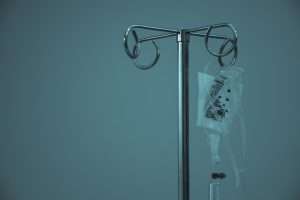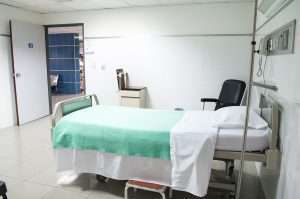FSA eligible medical supplies offer a smart way to save money on healthcare expenses by using pre-tax dollars. If you’re new to the concept or trying to make the most of your current Flexible Spending Account (FSA), it’s important to know what qualifies. These supplies can range from everyday essentials like first aid kits to more specific items like blood glucose monitors. Below is a quick list to get you started:
- Blood glucose monitors and test strips
- Allergy and sinus relief medications
- Contact lenses and related eye care products
- First aid supplies and sunscreen
- Menstrual care products
Understanding FSA eligible medical supplies can help employees and employers alike manage healthcare expenses efficiently.
I’m Les Perlson, an experienced partner in the insurance industry with a strong focus on FSA eligible medical supplies. My background in health insurance and employee benefits design offers valuable insights into helping businesses maximize their healthcare savings. Next, you’ll learn how these supplies play a crucial role in effective healthcare management.

Understanding FSA Eligible Medical Supplies
Navigating FSA eligible medical supplies can be daunting, but it’s a worthwhile endeavor for anyone looking to save on healthcare costs. The key is knowing which items qualify under your Flexible Spending Account. Let’s break it down.
What Are FSA Eligible Items?
FSA eligible items are specific healthcare products and services that you can purchase using funds from your FSA. These items are approved by the IRS and are typically necessary for medical care. The list is extensive and includes everything from prescription medications to over-the-counter drugs and medical devices.
The IRS List
The IRS provides a comprehensive list of FSA eligible items. This list is updated periodically to include new items or remove those that no longer qualify. It’s essential to regularly check this list or consult with your FSA administrator to ensure your purchases are covered.
Here’s a snapshot of some commonly eligible items:
- Diagnostic Products: Blood glucose monitors and test strips are essential for individuals managing diabetes.
- Medications: Both prescription and certain over-the-counter medications, like allergy and sinus relief, qualify.
- Vision Care: Contact lenses, eyeglasses, and even eye exams are covered under FSA.
- First Aid and Preventative Care: Items like bandages, sunscreen, and even menstrual care products are eligible.
Why Understanding FSA Eligibility Matters
Knowing which medical supplies are FSA eligible can make a significant difference in your healthcare budget. By using pre-tax dollars, you effectively lower your taxable income, allowing your healthcare funds to stretch further. This means you can afford necessary medical items without breaking the bank.
For instance, purchasing a blood glucose monitor with FSA funds not only helps manage a chronic condition but also saves money. Similarly, stocking up on allergy medications during peak seasons becomes less of a financial burden.
Understanding these eligibility criteria ensures you maximize your FSA benefits while avoiding out-of-pocket expenses for non-eligible items. It’s a savvy way to manage healthcare costs efficiently.
Next, we’ll dig into the most popular FSA eligible medical supplies, providing you with a detailed guide on what to prioritize for your healthcare needs.
Top FSA Eligible Medical Supplies
When it comes to maximizing your FSA benefits, knowing which medical supplies are eligible can make all the difference. Here’s a closer look at some of the top FSA eligible medical supplies you should consider.
Blood Glucose Monitors and Test Strips
For those managing diabetes, blood glucose monitors and test strips are not just essential—they’re lifesavers. These diagnostic products help in keeping track of blood sugar levels, ensuring you can take timely action. With FSA funds, you can purchase these items tax-free, making it easier to maintain your health without added financial stress.
Allergy and Sinus Rx and OTC Medicine
Seasonal allergies or sinus issues can be a real nuisance. Luckily, both prescription and over-the-counter allergy and sinus medications are FSA eligible. This includes antihistamines and decongestants, which can provide much-needed relief. The CARES Act expanded FSA eligibility, so you no longer need a prescription for many of these over-the-counter medicines.
Contact Lenses and Eye Care
Vision care is another critical area where FSA funds can be used. Contact lenses, eyeglasses, and even eye exams are covered. This means you can keep your vision sharp without having to worry about the cost. If you’re due for a new pair of glasses or need to restock your contact lens supply, using FSA dollars is a smart move.
First Aid Supplies and Sun Care
Every home should have a well-stocked first aid kit. Items like bandages, antiseptic wipes, and gauze are all FSA eligible. Additionally, sun care products, such as sunscreen with SPF 15 or higher, qualify as well. Protecting your skin from harmful UV rays is not just a summer concern—it’s a year-round necessity.
Menstrual and Feminine Hygiene Products
Recent changes in legislation have also made menstrual and feminine hygiene products eligible for FSA funds. This includes tampons, pads, and menstrual cups. These are everyday essentials for many, and being able to purchase them with pre-tax dollars is a significant benefit.

By focusing on these key categories, you can ensure that your FSA funds are used effectively, covering necessary health expenses while keeping your budget in check. Up next, we’ll explore how to maximize these benefits even further to save on healthcare costs.
How to Maximize Your FSA Benefits
Maximizing your FSA benefits is all about smart planning and making the most of the tax-free dollars you’ve set aside. Here’s how you can ensure every dollar counts:
Plan Your Contributions Wisely
Start by reviewing your past medical expenses. Look at what you spent on co-pays, prescriptions, and any out-of-pocket costs. This will give you a good baseline for how much to contribute to your FSA. FSAs are “use-it-or-lose-it,” so be conservative, but not too much. You can carry over up to $640 or use a 2.5-month grace period, depending on your employer’s plan.
Keep Track of Eligible Expenses
Knowing what’s covered under your FSA is crucial. The IRS provides a list of FSA eligible medical supplies, including items like blood glucose monitors, allergy medications, and contact lenses. Use this list to plan your purchases and avoid out-of-pocket expenses.
Schedule Appointments Early
Book your medical appointments, such as dental cleanings and eye exams, early in the year. This way, if follow-up treatments are needed, you have time to plan and use your FSA funds.
Use Reimbursement for Cost-Saving
When you purchase eligible items, keep your receipts and submit them for reimbursement. This process allows you to get your money back tax-free. For instance, if you buy first aid supplies or sunscreen, you can submit these expenses to your FSA administrator and get reimbursed.
Stock Up on Essentials
With recent changes, over-the-counter medications and menstrual care products are now eligible without a prescription. Stock up on these items to ensure you’re using your FSA funds effectively.
Leverage Technology
Use apps or online tools to scan your previous purchases for eligible items. This can help you identify what you’re already buying that qualifies for FSA reimbursement, ensuring you’re not missing out on any savings.
By planning ahead and utilizing your FSA funds for eligible medical supplies, you can save significantly on healthcare costs while reducing your taxable income. Next, we’ll dive into frequently asked questions about FSA eligible medical supplies to clear up any lingering doubts.
Frequently Asked Questions about FSA Eligible Medical Supplies
What is the IRS list of FSA eligible items?
The IRS list is your go-to guide for determining which medical expenses are covered by your Flexible Spending Account (FSA). This list includes a wide range of items that can help you manage your healthcare costs.
Eligible items generally fall under categories that prevent or treat medical conditions. These include:
- Medical and Dental Expenses: Think co-pays, deductibles, and treatments not covered by insurance.
- Over-the-Counter Medications: Thanks to the CARES Act, many OTC medications are now eligible without a prescription.
- Medical Equipment and Supplies: Items like blood glucose monitors and test strips are covered.
- Preventative Services: Vaccinations and smoking cessation programs can also be reimbursed.
For a detailed list, refer to the IRS Publication 502.
Can FSA funds be used for dental care?
Absolutely! Dental care is one of the most valuable uses of your FSA funds. You can use these funds for a variety of dental procedures, including:
- Routine Cleanings: Keep your teeth in top shape with regular cleanings.
- Fillings and Root Canals: Address cavities and infections without worrying about the cost.
- Braces and Extractions: Orthodontic treatments and tooth removals are covered.
- Dentures: Get support for dental prosthetics if needed.
However, everyday items like toothpaste and dental floss aren’t covered. For more specialized dental products, check the FSA store.
Are fertility treatments covered by FSA?
Yes, fertility treatments are covered under FSA, providing significant support for those on the journey to parenthood. This includes:
- Fertility Treatments: Such as IVF and other assisted reproductive technologies.
- Pregnancy Tests: Stock up on these essentials without dipping into your savings.
- Prenatal Vitamins: Ensure a healthy pregnancy with doctor-recommended supplements.
For family planning, FSA funds can also cover pregnancy services like birth classes and breastfeeding supplies. Just remember, some items like birth control may require a prescription to qualify for reimbursement.
By understanding what your FSA can cover, you can make informed decisions about your healthcare spending. Up next, we’ll explore common misconceptions about FSAs to help you make the most of your benefits.
Conclusion
At NPA Benefits, we understand the importance of making every healthcare dollar count. Flexible Spending Accounts (FSAs) provide a powerful tool to manage healthcare expenses efficiently. By taking advantage of FSA eligible medical supplies, you can reduce your out-of-pocket costs while ensuring you and your family receive the care you need.
Our expertise lies in offering self-funded health insurance plans that prioritize flexibility and savings. This means you can enjoy greater control over your healthcare spending, tailoring your plan to fit your unique needs. Whether it’s dental care, vision services, or essential medical supplies, we help you steer the complexities of FSAs with ease.
FSAs operate on a “use-it-or-lose-it” basis, so planning ahead is crucial. Regularly reviewing your FSA balance and the eligible items list can prevent any unspent funds from going to waste. With our support, you can make informed decisions, ensuring you maximize your benefits and manage your healthcare expenses effectively.
For more information on how NPA Benefits can assist with your healthcare financial planning, visit our FSA Eligible Products page. Find how we can help you take full advantage of your flexible spending options and improve your health insurance experience.
By partnering with us, you’re not just choosing a health insurance provider—you’re choosing a partner dedicated to your well-being and financial health. Let’s make your healthcare journey as smooth and cost-effective as possible!






